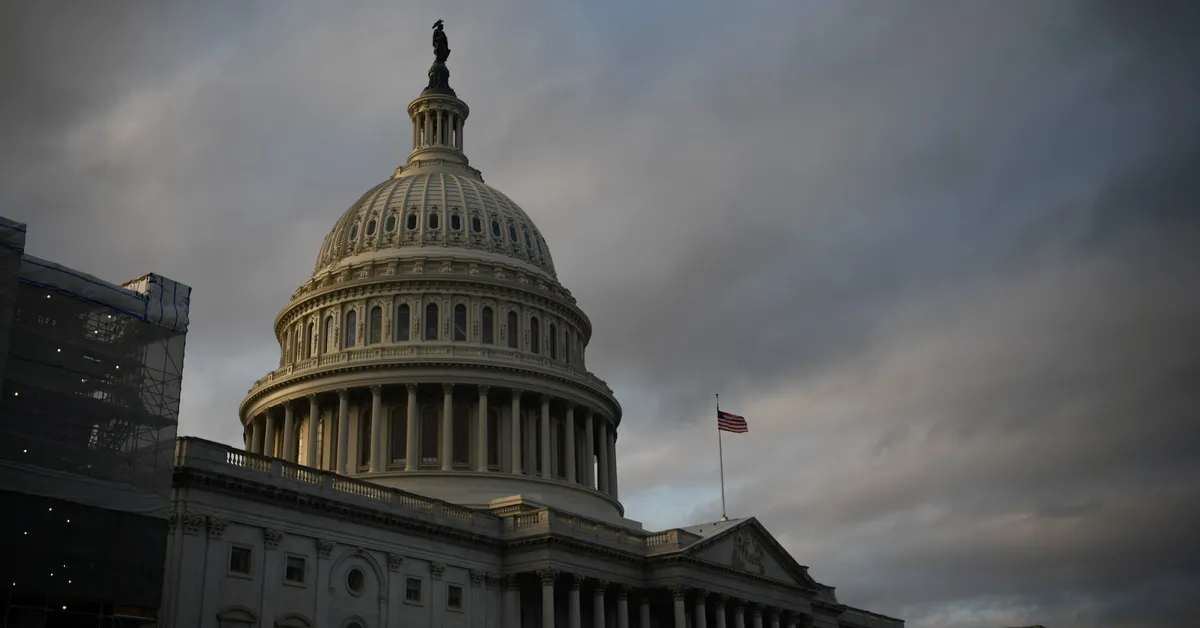
On May 16, 2023, the ambitious tax bill proposed by U.S. President Donald Trump encountered a significant hurdle, failing to pass a crucial procedural vote in the House Budget Committee. This unexpected setback stems from a faction of hardline Republicans who are demanding deeper spending cuts, leading to a rare moment of political discord within the Republican Party.
Amidst the political turmoil, President Trump urged his fellow Republicans to unite behind the proposed legislation, explicitly stating, "We don't need 'grandstanders' in the Republican Party. Stop talking, and get it done!" This message, conveyed through a social media post, reflects Trump's frustration with the internal divisions that have emerged.
The House Budget Committee's vote saw five of the 21 Republican members oppose the bill, aligning with the demands for further cuts to the Medicaid healthcare program, which serves lower-income Americans. Additionally, these hardliners are calling for the complete repeal of green energy tax incentives previously implemented by Democrats. In a rare move, the budget committee has scheduled a Sunday night session to reconsider the legislation.
If passed, the tax bill is projected to add trillions to the federal government's existing debt of $36.2 trillion over the next decade. Representative Ralph Norman, a vocal opponent of the bill, expressed his concerns, stating, "This isn't a grandstand. We'll compromise somewhere, but just not giving the farm." This highlights the ongoing struggle between hardline conservatives and more moderate Republicans within the party.
The vote's outcome poses potential risks for the Republican Party, particularly with the upcoming 2026 midterm elections in sight. Moderate Republicans from competitive districts have raised alarms that significant spending cuts to social safety net programs could jeopardize the party's slim majority in the House, currently holding a 220-213 seat advantage.
House Budget Committee Chairman Jodey Arrington emphasized the importance of the legislation to voters who supported Trump in the last election, stating, "They want common sense policies. And they want from all of us a commitment to putting America and Americans first." This sentiment underscores the pressure on lawmakers to deliver on the promises made during the campaign.
Critics of the proposed tax bill, including Democrats, argue that it disproportionately benefits the wealthy while jeopardizing healthcare coverage for millions of Americans. Nonpartisan congressional research suggests that proposed cuts to Medicaid and federally subsidized health insurance could result in approximately 8.6 million individuals losing their health coverage. Representative Brendan Boyle, the committee's top Democrat, criticized the bill, stating, "No other previous law, no other previous event caused so many millions of Americans to lose their healthcare. Not even the Great Depression."
The Republican Party is currently divided into three significant factions: moderates from Democratic-led states advocating for an increased federal deduction for state and local taxes; hardliners insisting on offsetting a larger SALT deduction with deeper Medicaid cuts; and other moderates aiming to limit Medicaid cutbacks. The proposed legislation includes provisions for imposing work requirements on Medicaid starting in 2029, a timeline that hardliners are eager to expedite.
As the weekend approaches, lawmakers hope to negotiate amendments to the bill, with some representatives indicating that they are prepared to reconvene on Monday for a potential vote. The outcome of these discussions will be pivotal in determining the future of Trump's tax policy and its implications for the Republican Party moving forward.